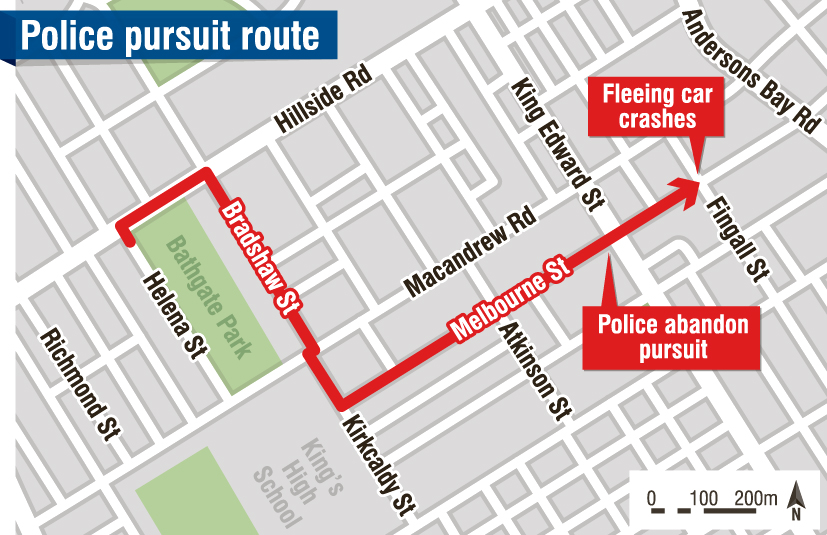
In May last year, Michael McClelland and four associates broke into the Bottle-O, next to Bathgate Park, in Hillside Rd.
The four fled and police, in an unmarked police car, pursued the vehicle at 1.25am for about one minute, without turning on sirens.
They covered 1.6km before abandoning the chase.
As police came to a stop, the driver lost control and crashed into a power pole in Melbourne St, leading to the death of Mr McClelland.
During the chase, the officer driving saw the driver of the fleeing vehicle crossing an intersection in a built-up residential zone at high speeds, with no lights on, and without stopping and giving away.
An Independent Police Conduct Authority (IPCA) investigation was initiated into the crash.
It found police should not have started the pursuit, they should have turned on sirens, the passenger should have handled radio communications, and Southcomm should have been informed of the pursuit.

"It is simply not possible to determine with any degree of confidence whether police action contributed to the crash in this case.
"It appears to us that the primary cause of the crash was [the fleeing driver’s] driving, which was no doubt influenced by his concern to flee from the scene of the burglary and by the fact that he was under the influence of alcohol."
The officer behind the wheel told the IPCA he initially wanted to stop the fleeing driver to speak to them.
He carried out the pursuit because the driver was travelling without lights, and he had a suspicion the occupants were involved in the Bottle-O burglary.
However, when the driver failed to stop, the officer should have assessed whether the offender was driving too dangerously to pursue.
The IPCA determined the reasons the officer gave were not sufficient to justify the pursuit under the police policy at the time.
He told the inquiry he did not switch the siren on because it was early in the morning and he wanted to get close to the vehicle to get its registration.
The IPCA concluded this breached police policy which said officers in pursuit should have their sirens on.
When the officer saw the fleeing driver going through the King Edward St intersection at high speed without stopping, he decided the danger was greater than any traffic stop he wanted to carry out, and abandoned the pursuit.
Shortly before he came to a full stop, the fleeing driver crashed.
The officer driving said he did not believe pursuing the driver affected his driving because his manner of driving did not change.
The fleeing driver confirmed that being pursued by police did not place him under any pressure.
He believed police were quite a bit behind him.











